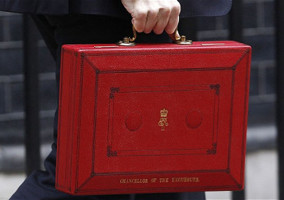Corporate income tax used to raise considerable revenue for the US government. However, corporate taxes have been falling since the 1970s due to lobbying and active management by multinationals. The cuts have been so extensive that 55 of the largest American corporations paid no federal tax on their 2020 profits, and 26 of these have paid nothing since 2018, according to the Institute on Taxation and Economic Policy.
Covid-19 has seen governments take the economic strain, supporting their economies by taking on historically high levels of debt. Many large infrastructure spending pledges have followed, notably the Biden administration’s $2.5tn plan. These will have to be paid for somehow, and an increase in corporate tax revenue is one way of doing so. President Biden has suggested increasing the corporate tax rate from 21% to 28%, while Treasury Secretary Janet Yellen is proposing a global minimum tax rate.
What does this mean?
The highly profitable technology sector has been an investor favourite in recent years due to its cash-generative abilities and has also benefitted from lockdowns. But along with the spectre of stricter regulation, they are right in the firing line of potentially increased taxation. Historically, the US has not looked kindly on foreign nations levying targeted taxes against these companies. But the mood has now shifted, and indebted governments everywhere need cash. A global minimum corporate tax would certainly impact the likes of Google and Apple that make use of a low tax regime in Ireland.
Nothing is certain, and with Sino-American tensions increasing, Biden needs to weigh the effect of handicapping the sector in a technology race with China. Also, a global minimum tax requires global cooperation, and negotiations have yet to begin. This is likely to be a long process, and success is not guaranteed. But the US is not alone in needing to raise tax revenue, so the chances of higher corporate tax rates being introduced are greater than they have been for many years.
Increases, if they come, are likely to hit current low taxpayers hardest, such as technology companies. These are widely held in charity investment portfolios. Trustees should be asking their investment managers whether they have factored in the increasing headwinds now faced by this sector.
Charles Auer is an investment associate at Ruffer
Ruffer LLP is a limited liability partnership, registered in England with registered number OC305288 authorised and regulated by the Financial Conduct Authority. The information contained in this article does not constitute investment advice or research and should not be used as the basis of any investment decision.
Related articles










